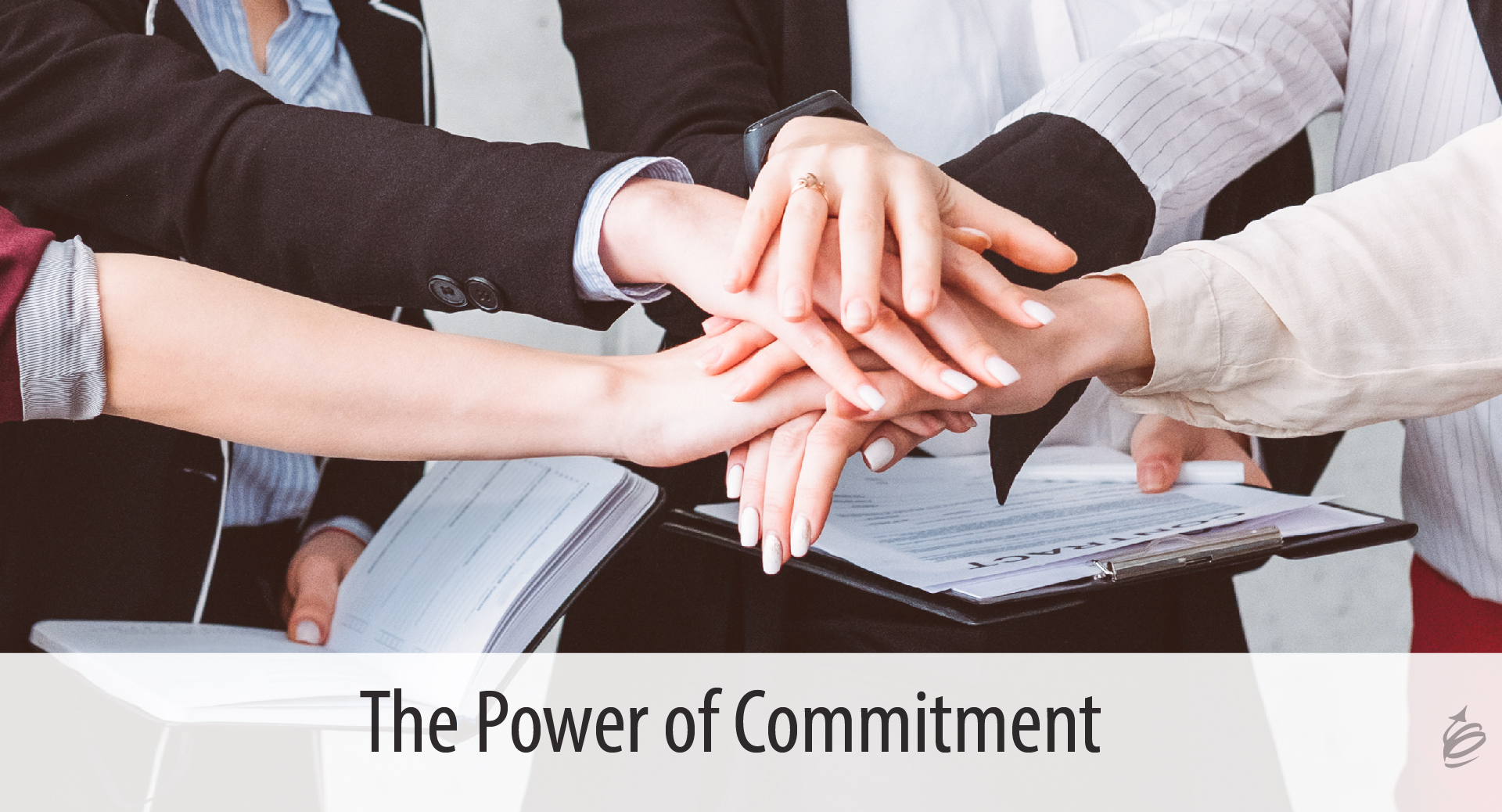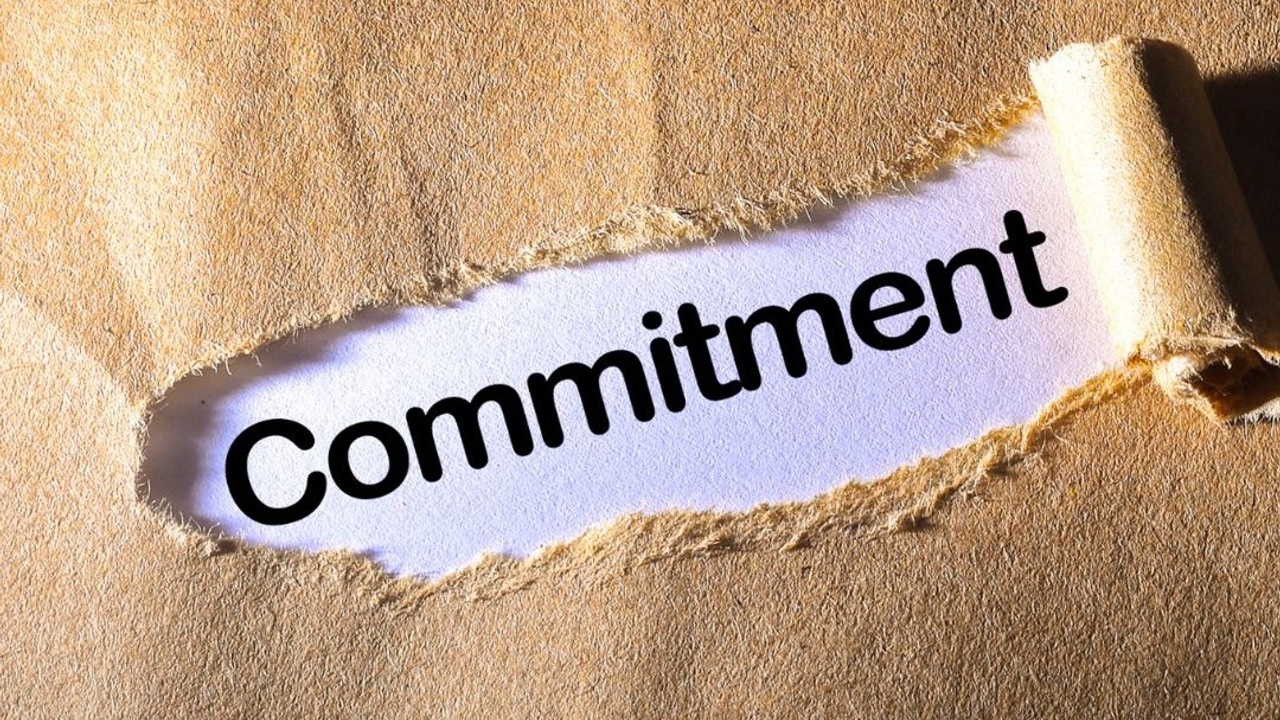Committed: A Skeptic Makes Peace With Marriage By Elizabeth Gilbert – Finding Your Own Path To Partnership
Have you ever felt a knot in your stomach when the topic of marriage comes up? Perhaps you've seen friends or family members tie the knot, and while you're happy for them, a quiet voice inside wonders if that path is truly for you. It's a feeling many share, this quiet questioning of a tradition that seems so deeply woven into our lives, yet, for some, it feels a bit like a mystery, or even a challenge to personal freedom. Elizabeth Gilbert, a writer known for her deeply personal explorations, tackles this very subject in her book, "Committed: A Skeptic Makes Peace with Marriage."
This book, you know, takes us on a rather honest trip through the idea of marriage, especially from someone who, frankly, had her doubts. It's not a simple love story, but more a thoughtful look at why we do it, what it means, and how someone who was pretty sure she'd never say "I do" found herself doing just that. Gilbert shares her own journey, making it feel very relatable for anyone who has ever felt a little unsure about walking down that aisle, or, you know, even just thinking about it.
We'll explore what makes "Committed: A Skeptic Makes Peace with Marriage by Elizabeth Gilbert" such a compelling read, looking at her personal experiences, her deep research, and the way she makes sense of a tradition that has changed so much over time. It's about finding your own way to partnership, even if you start out with a lot of questions. So, let's just get into it and see what wisdom she shares.
Table of Contents
- Elizabeth Gilbert: A Glimpse at the Author
- The Heart of "Committed": A Skeptic's Journey
- Love, Law, and the Long Haul: Gilbert's Deep Dive
- Finding Your Own Peace with Partnership
- Common Questions About "Committed"
Elizabeth Gilbert: A Glimpse at the Author
Elizabeth Gilbert is, arguably, a name many folks know, especially after her book "Eat, Pray, Love" touched so many hearts. She has a way of sharing her personal experiences with such openness, making readers feel like they're sitting down with a good friend. Her writing style is, you know, very direct, yet also full of warmth and humor. She doesn't shy away from the messy bits of life, which is probably why her stories resonate so deeply with so many different people.
Before "Committed," Gilbert had already built a reputation for exploring big life questions, from finding purpose to dealing with loss. Her work often encourages readers to look inward and consider what truly makes them feel alive and connected. She has a knack for turning personal struggles into universal conversations, which is a pretty special skill, to be honest. It's this kind of thoughtful approach that she brings to the topic of marriage, too, making it much more than just a simple story.
Personal Details and Bio Data
| Full Name | Elizabeth M. Gilbert |
| Born | July 18, 1969 |
| Birthplace | Waterbury, Connecticut, U.S. |
| Occupation | Author, Essayist, Biographer |
| Notable Works | "Eat, Pray, Love," "Committed," "The Signature of All Things," "Big Magic" |
| Themes Explored | Spirituality, travel, personal growth, creativity, relationships, marriage |
The Heart of "Committed": A Skeptic's Journey
"Committed: A Skeptic Makes Peace with Marriage by Elizabeth Gilbert" isn't a sequel in the usual sense, but it does pick up where "Eat, Pray, Love" left off. After finding love with Felipe (whom she calls "Jose" in "Eat, Pray, Love"), the couple faces a unique challenge: U.S. immigration authorities require them to marry for Felipe to stay in the country. This demand forces Gilbert, a self-proclaimed marriage skeptic, to confront an institution she had, frankly, always avoided. It's a rather interesting turn of events, wouldn't you say?
The book then becomes Gilbert's personal quest to understand marriage, both its historical roots and its modern-day meaning. She travels, she reads, she talks to people from all walks of life, all to answer one big question: why do we do this thing called marriage? It's a very honest look at her own fears and reservations, and how she tries to make sense of something that feels both ancient and, in some ways, quite new.
Beyond the Fairytale: Marriage as a Human Institution
One of the truly wonderful things about "Committed" is how Gilbert pulls back the curtain on the romanticized version of marriage. She doesn't just focus on the "happily ever after" part; instead, she looks at marriage as a human institution, something that has changed dramatically over centuries. She explores how it was once about property, alliances, and survival, rather than just about love. This historical context is, you know, pretty eye-opening, showing that our modern ideas about marriage are actually quite new.
She digs into how marriage has been used for social control, economic stability, and even political power. It’s a bit of a history lesson, but told in her engaging, personal style. You get to see how what we consider "normal" about marriage today is actually, in some respects, a very recent invention. This broader view helps to, perhaps, lessen the pressure of the fairytale ideal, allowing for a more realistic and, dare I say, healthier view of what partnership can be.
The Weight of "Committed" Memory: What It Feels Like
For a skeptic like Gilbert, the idea of commitment isn't just a simple promise; it carries a lot of weight, a kind of internal "commit charge," if you will. It's like when you look at your computer's resources, and you see that "committed memory" is high, even if the "physical usage" seems lower. You wonder, you know, "How can I identify what process(es) is allocating" all that internal space? It's a bit like that with emotional commitment – you feel this deep dedication, this unseen allocation of your internal self, and it's not always clear what exactly is taking up that much room.
Gilbert, in her own way, grapples with this feeling of "committed_as" – the total amount of emotional and mental space she estimates it will take to truly commit to this partnership. It represents, in a way, the worst-case scenario value of what marriage might demand from her, including all the unseen "swap memory" of personal compromises and shared futures. She's trying to understand the actual difference between her personal "committed bytes" – what she feels she's already given – and the societal "commit limit" of what marriage expects. It’s a very personal struggle to reconcile the internal feeling of being committed with the external act of marriage, and it can feel like a lot is being used, even if the visible signs are, you know, pretty low. It's like when your task manager shows high total memory usage, but no single program seems to be the culprit; the commitment feels pervasive, but its individual demands are hard to pinpoint. This is, apparently, a common feeling for those facing a big life change.
Unpacking the Skeptic's Doubts
Gilbert doesn't just skim over her skepticism; she really gets into it. She talks about the historical oppression of women within marriage, the high divorce rates, and the general societal pressure to conform. These aren't just abstract ideas for her; they're very real concerns that shaped her view of commitment. She asks, quite frankly, if marriage is truly a good deal for everyone, especially for women, given its history. This kind of honest questioning is, frankly, what makes her so relatable to many readers who share similar worries.
She also considers the personal cost of giving up independence, a theme that resonated strongly in "Eat, Pray, Love." For someone who had embraced freedom and self-discovery, the idea of tying herself to another person, legally and emotionally, was a huge hurdle. Her journey in "Committed" is, in some respects, about working through these deep-seated fears and finding a way to reconcile her desire for partnership with her need for personal autonomy. It’s a bit of a tightrope walk, to be honest.
Love, Law, and the Long Haul: Gilbert's Deep Dive
Beyond her personal narrative, "Committed" is also a deeply researched book. Gilbert, you know, really did her homework. She delves into anthropology, sociology, and legal history to paint a full picture of marriage as a global and evolving concept. This scholarly yet approachable approach is one of the book's great strengths, giving readers a much broader context for their own thoughts on marriage. It's pretty cool, actually, how she blends the personal with the academic.
She looks at different cultures and how they've approached partnership, from arranged marriages to more modern, love-based unions. This comparative view helps to show that our Western ideas about marriage are just one way of doing things, and not necessarily the only or "right" way. It broadens your perspective, making you think about marriage not just as a personal choice, but as a social construct that shifts and changes over time, too it's almost a living thing.
Historical Perspectives on Partnership
Gilbert takes us on a trip through time, showing how marriage has been, at various points, about property transfer, securing lineage, or forging political alliances. Love, she points out, was often an afterthought, if it was considered at all. This historical context is, you know, quite important for understanding why marriage holds the weight it does today. It helps to demystify some of the traditions we still observe, making them seem less like universal truths and more like relics of past social needs. You can learn more about the evolving nature of marriage through history by checking out resources from academic institutions, for example, a look at Britannica's entry on marriage offers some really good insights.
She explores the role of women, who were often treated as property within marriage, with little to no legal rights. This rather stark reality of historical marriage is a big part of her initial skepticism. She asks us to consider how much of this past still, perhaps, lingers in our modern expectations and structures, even if we're not always aware of it. It’s a pretty powerful argument for why some people might feel a bit wary of the whole institution, even today.
Modern Relationships: Challenges and Choices
In the present day, Gilbert looks at the challenges faced by modern couples. With higher expectations for emotional fulfillment and personal happiness, marriage today is, arguably, under more pressure than ever before. She talks about the shift from marriage as a practical necessity to marriage as a choice based on love and companionship. This change, while seemingly positive, also brings its own set of difficulties, like managing expectations and maintaining individuality within a shared life. It's a very different landscape, to be honest.
She also touches on topics like same-sex marriage and the ongoing evolution of partnership models. Gilbert acknowledges that the definition of marriage is still, you know, very much in flux, reflecting broader societal changes. Her book is, in a way, a snapshot of this moment in time, where people are trying to figure out what commitment means in a world that values both connection and personal freedom. It’s a discussion that feels very relevant right now, as a matter of fact.
Finding Your Own Peace with Partnership
Ultimately, "Committed: A Skeptic Makes Peace with Marriage by Elizabeth Gilbert" isn't about convincing everyone to get married. Instead, it's about making peace with the idea, whatever your personal choice might be. For Gilbert, her journey led her to a place where she could embrace marriage not as a loss of self, but as a new kind of adventure, a shared exploration. It’s about finding your own terms for partnership, and that’s a pretty powerful message.
She learns that commitment doesn't have to mean losing who you are; it can, in fact, be a way to deepen your experience of life and love. It’s about understanding that marriage, like any relationship, is a living thing that needs care and attention, and that it can, you know, grow and change with you. This shift in perspective is, perhaps, the most valuable takeaway from her story.
Lessons for the Unsure Heart
For anyone who feels a bit hesitant about long-term commitment, Gilbert's book offers a kind of comfort. She shows that it's okay to have doubts, to ask tough questions, and to approach big life decisions with caution. Her journey suggests that true commitment comes not from blindly following tradition, but from a thoughtful, personal process of understanding what you're stepping into. It's about, you know, making an informed choice, rather than just going along with things.
One key lesson is the importance of communication and honesty within a partnership. Gilbert and Felipe's relationship is built on open dialogue, allowing them to navigate their fears and expectations together. This kind of transparent approach is, quite frankly, essential for any lasting connection, whether it's formalized or not. Learn more about building strong connections on our site, and for more insights into personal growth, you might want to link to this page .
Making Room for Commitment
Gilbert's experience suggests that making peace with marriage often involves creating space for it in your life, both literally and figuratively. It's about recognizing that commitment, like the "committed memory" in a system, does take up resources, but those resources can be allocated wisely. It’s not necessarily about maxing out your personal "commit limit," but rather understanding what that capacity is and how to manage it. You know, it's about consciously deciding what you're willing to dedicate and how that dedication will shape your shared future.
Ultimately, her story is a testament to the idea that love can lead you to unexpected places, and that even the most skeptical among us can find a kind of peace with partnership, on our own terms. It’s a journey of self-discovery as much as it is about understanding marriage, and that's a pretty powerful message for anyone considering their own path.
Common Questions About "Committed"
1. Is "Committed" a sequel to "Eat, Pray, Love"?
While "Committed" picks up on Elizabeth Gilbert's story after "Eat, Pray, Love," especially concerning her relationship with Felipe, it's not a direct continuation of the narrative style. "Committed" focuses much more on a deep dive into the institution of marriage, rather than being another personal travelogue. So, it's a thematic follow-up, you know, but with a very different kind of exploration.
2. What is the main message of "Committed: A Skeptic Makes Peace with Marriage by Elizabeth Gilbert"?
The main message is that marriage, while a complex and historically loaded institution, can be approached with an open mind, even by a skeptic. Gilbert explores how understanding its history and societal roles can help individuals find their own personal peace with commitment, whether they choose marriage or another form of partnership. It's about informed choice, basically, and finding your own way to a lasting connection.
3. Is "Committed" only for people considering marriage?
Not at all! While the book directly addresses marriage, its broader themes of commitment, personal freedom, societal expectations, and the nature of partnership are relevant to anyone in a long-term relationship or even just thinking about what it means to share a life with someone. It's a book for anyone who ponders the big questions about love and connection, you know, regardless of their relationship status.

Do you really want committed people?

The Power of Commitment - The Kevin Eikenberry Group

Moving From Being Interested to Being Committed